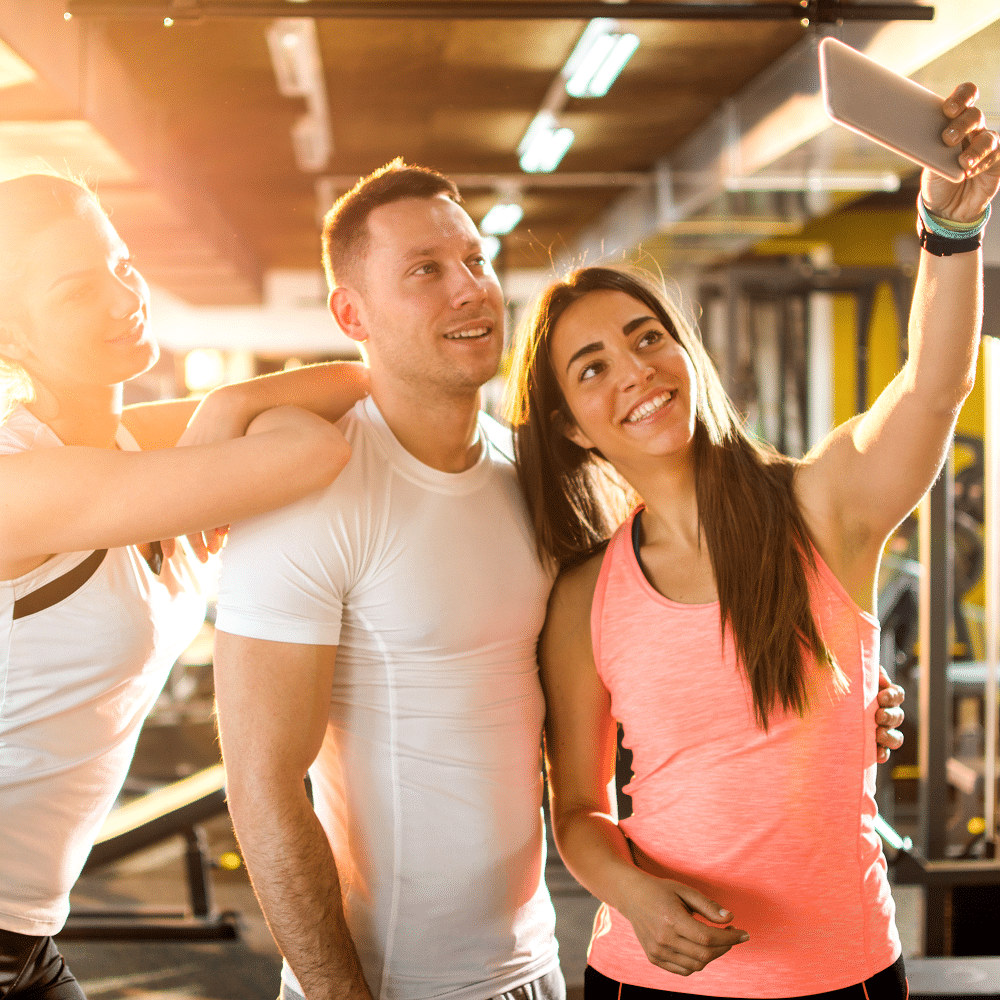This study investigated the possible effects of mental fatigue induced by smartphone social media use on volume load in resistance training among adults who were recreationally trained. For the investigation, 16 participants performed three sets of half-back squat exercises to failure with 80% of 15RM.
The exercise was interspersed with three minutes of passive recovery between the sets, before and after two different cognitive tasks: using a smartphone to scroll social media apps; and watching a documentary as a control condition. The researchers assessed variables and ratings of the participants’ perceived exertion during the strength exercise.
According to the researchers, relative to viewing the documentary, participant exposure to a 30-minute session of smartphone social media scrolling led to increased perceptions of mental fatigue (p = 0.004) and lower volume load during exercising (p = 0.006). The researcher found no significant differences in perceived exertions between the conditions (p = 0.54), participant motivation (p = 0.277), intra-set mechanical variables (p > 0.05), or participant blood lactate concentrations (p = 0.36).
The researchers suggest that their findings of an isolated possible higher-than-normal RPE without changes in physiological variables which accompanied the lower volume load in the mentally fatigued participants support a psychological basis rather than a physiological basis for the mental fatigue effects.
This study adds weight to the growing body of evidence highlighting the potential detrimental effects of social media use ranging from increasing negative body image perception, decreasing both quality and quantity of sleep, and in general undermining mental health. All of these effects are enough to affect our performance, but the effects go further than that.
People tend to post things that only look perfect on social media, this leads to constant comparisons which can cause eating disorders and overtraining. Additionally, scrolling social media is a major source of time-wasting distraction that especially when done before a workout can minimize our intentional productive time in training. Not only that but social media is a major source of misleading, conflicting, and rather questionable advice on important topics such as nutrition and training protocols that adds to confusion, frustration, stalled progress, setbacks, and even injury.
Take a moment to think about how many times you find yourself feeling less competent, less attractive, less connected, less happy, and less worthy after scrolling social media than you were before opening these platforms. We tend to follow people who appear to have perfected the execution of their goals, and we can’t help comparing ourselves which can make us feel ashamed. Even though we know that this perfect image we see has been intentionally created, the damage to our self-perception still impacts us, and these comparisons can lead to self-sabotage ranging from undereating to over training which gets in the way of performance progress and often leads to injury.
People complain about how little time they have, how busy they are, and that they have no time to exercise, yet they always have time to endlessly scroll. Habitual mindless scrolling also wastes countless hours every day, those hours spent on social media take away time that could be spent better focusing on better things like taking a walk outside, having fun with our friends and family in person, or when done pre-workout takes away from the focus we need to exercise.
Social media platforms have been developed to get people to log in as much as possible, this is the reason it can become addicting because subconsciously we can help reaching for it. Did you know that on average people scroll social media for 2-3 hours a day (this number is suspected to be much higher; people tend to under-report unflattering things), which is 14-21 hours a week? Think about all the things that could have been done during that time, more productive things, and things that could help move towards your fitness goals.
Social media appears to be full of “expert” advice and just about every athlete and coach is selling some kind of program. However, just because it is on the internet does not mean that it is effective or even true, and it definitely does not mean that it will work for you.
However, not everything is bad, there are benefits to social media, you just need to be selective about your viewing choices. With a little research, you can find access to real professional experts and programs that can help you, they can provide encouragement and inspiration that doesn’t make you want to compare yourself, and you can even join communities that can connect you to like-minded people from around the world.
Set limits on what you look at and how much time you spend scrolling and put your device on airplane mode when you are working out. When you learn how to balance and cultivate your social media use with an intentionally selected feed you may find yourself being more happy, productive and overall, healthier.




